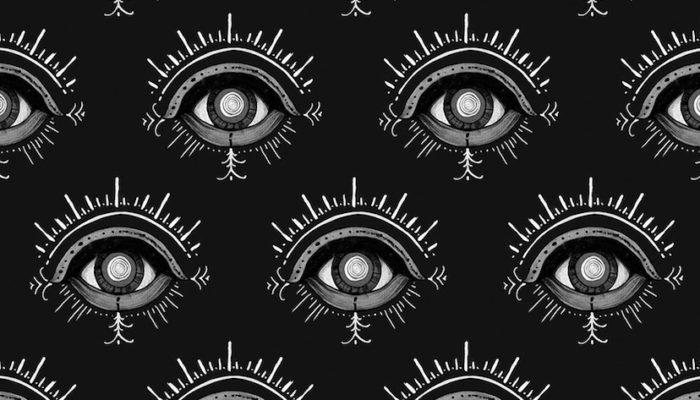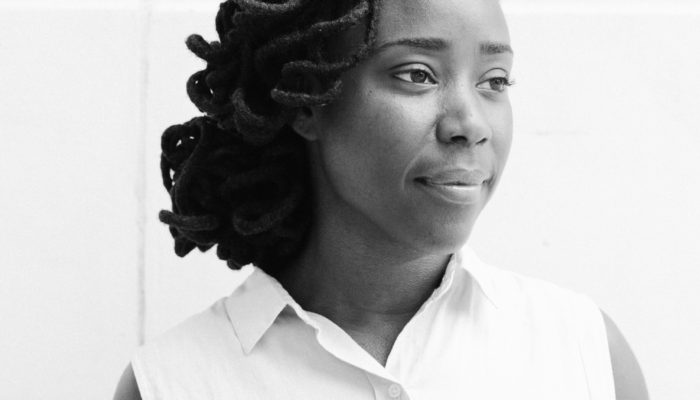I had a question. While reading through and compiling the poetry for issue five, this same question kept harassing my core. In issue five, we catch many speakers in the midst of border crossing. LiraeL O and Charif Shanahan ruminate on borders of identity. In Zubair Ahmed’s “Blueprint,” a speaker in search of origin says, “I ask God for my blueprints. / He hands me a thing rectangular box / As lightweight as an insect.” In “New Map,” we catch Marisa Beltramini’s speaker feeling small as the image of boiling water crosses her from a profane space into a religious one. She writes, “I am small / as an iridescent beetle, / my back an arched and ready mask / of orange and black.” What originates this feeling of smallness? Of lightness? Borderlines can be represented by events or physical objects–state lines, text or bodies (their ability, their change)–or represented by the intangible, such as language, words, identity, and hybridity. The other side cannot be known until it is experienced and is, perhaps, unknowable even then. We asked our writers: in what do you place your faith during the act of crossing between places, nations, people, bodies, things, and feelings? And how? We asked that writers be free in their (re)definitions of borders and faith. Throughout the week, we will be featuring what they’ve shared in our online symposium on Faith at the Border.
–Joey De Jesus, Poetry Editor
Resident Alien, by Kazim Ali
Does a border exist to be crossed? The body requires documents by human law.
Depending on what scripture you believe, the body first created border police in the form of clothing when it partook of another body, i.e. “tasted forbidden fruit.”
Forbidden by whom? Or by what impulse?
The spirit too, in human history, has required to be documented. If the spirit did not bend the body could be subject to burning, hanging, pressing beneath boulders, stoning.
If the spirit could not bend the body must be made to bend.
That’s the law of nation, religion, and market.
In the epic, Odysseus was the first “translator” carrying the icon of Pallas across the threshold of the city of Troy so that Troy could fall. He only manages it because Hecuba the Queen sees two dirty and tired strangers and invites them into the city and takes care of them.
They repay her with the first of many “translations” of her city. She does not fare well in any of them.
So is the translator carrying the text into the new language to facilitate conquest?
Witness the Christian calendar of saint days created for the purpose of replacing the pagan gods all across the continent.
A practice which predated Christianity: for example: Medusa, the woman with hair as thick as snakes who could look into your heart and turn you to stone.
At any rate, the translator, the poet, the believer, they have all never not been in the service of empire, in the service of existing power structures, against the individual, against the spirit, without borders.
How could I say this? Because they work with language to make meaning. They seek to restore what was split at the beginning, which was carnality: the birth of the spirit into flesh.
Put another way: language happened, and by extension translation, when God refuted the builders of the tower and the towers fell.
Rather than know the body, its beauty and uniqueness and singularity, they sought to return to the spirit without knowledge.
To me the act of translation—of one language to another, or of experience into language itself—is always an act of control, of colonization, of definition, which is necessarily an act of denial of possibility, denial of the endless state of wonder.
It is why I thank god I am queer because my quirk is for questioning.
The question is not a position of power and the question does not always ask for an answer. The answer is the delineation. The question is a frightening.
In boundless shapes of sound that quiver between—not nonsense at all but gambling everything on the hope that this life is meant for something, that a body is a small echolocation of a vast unknown—what is understood and what is yet incomprehensible, we might find then the babble was not a refutation or a refusal but an invitation. We were invited.
The border does not exist to be crossed. It exists to show the possibilities of living in a body, to understand the formless by appreciating the form. Words give sound to the universal sound which has no shape or way of being understood.
“Invite:” the literal translation of which might be: “to bring into life.” To enlife.
These contributions for Faith at the Border are from our Issue 05 writers. Read Kazim Ali’s poem, “Private Manning,” in Apogee Issue 05, available for purchase now.
KAZIM ALI is a poet, essayist, fiction writer and translator. His books include several volumes of poetry, including Sky Ward (Wesleyan University Press, 2013), The Far Mosque, winner of Alice James Books’ New England/New York Award,The Fortieth Day (BOA Editions, 2008), and the cross-genre text Bright Felon: Autobiography and Cities (Wesleyan University Press, 2009). He has also published a translation of Water’s Footfall by Sohrab Sepehri (Omnidawn Press, 2011), and (with Libby Murphy) L’amour by Marguerite Duras (Open Letter Books, 2013). His novels include Quinn’s Passage (blazeVox books), named one of “The Best Books of 2005” by Chronogram magazine and The Disappearance of Seth (Etruscan Press, 2009), and his books of essays include Orange Alert: Essays on Poetry, Art and the Architecture of Silence (University of Michigan Press, 2010), Fasting for Ramadan (Tupelo Press, 2011).
NICA ROSS is a New York based visual artist who works with photo, video and lighting creating pieces that instigate alternate narratives using themes of science fiction, queerness and desire. Nica’s photograph, “Jupiter,” is featured above and in Apogee Issue 05.




